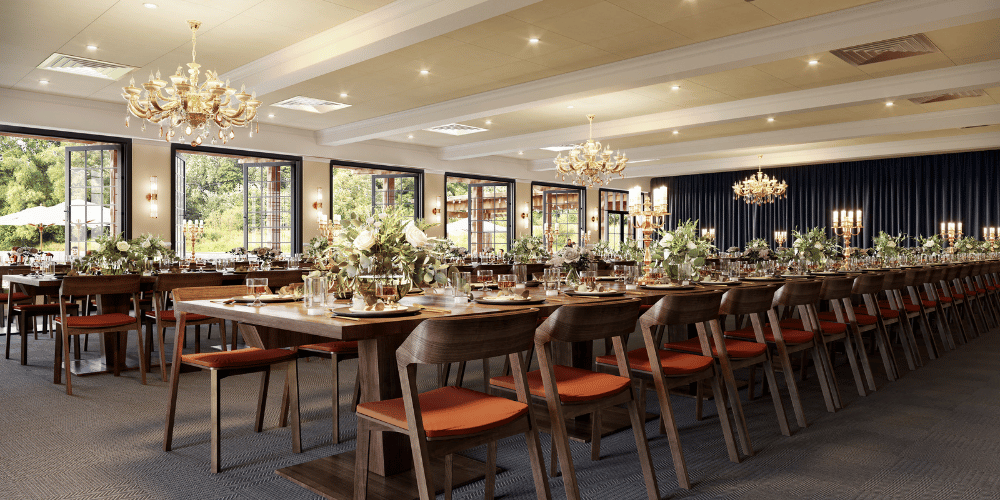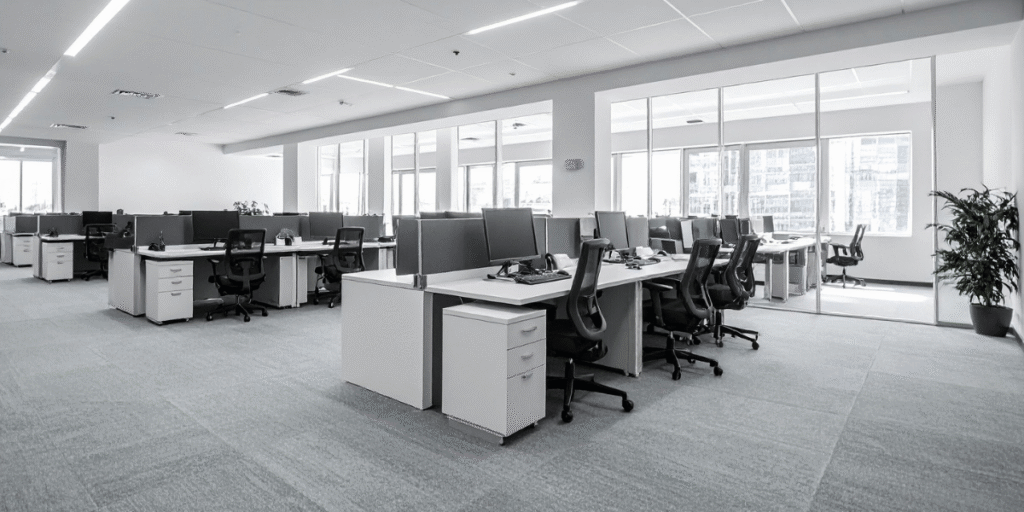Restaurant Real Estate: Key Trends to Consider

Finding the perfect restaurant space for lease can be challenging, but it’s a crucial step for your business’s success. Understanding the latest market trends for restaurants and knowing what to look for in restaurant is essential for making smart decisions.
In this blog post, we’ll explore the current trends in real estate for restaurants that you need to know before investing in a location. We’ll show you how choosing the right restaurant space for rent can guide your strategies and investments, and highlight key considerations to help ensure your long-term success.
Current Trends in Restaurant Real Estate
Staying updated on the latest trends in restaurant real estate can help you make strategic decisions. Here are some key trends shaping the market:
- Increased Demand for Outdoor Dining Spaces: Outdoor seating is highly sought after due to customer preferences for open-air dining.
- Rise of Ghost Kitchens: Delivery-only kitchens are popular, reducing overhead costs and optimizing for high-efficiency food prep and delivery.
- Emphasis on Sustainability: Energy-efficient features and eco-friendly designs are attracting more interest from restaurateurs and consumers.
- Flexible Lease Terms: Short-term leases and flexible agreements are appealing due to economic uncertainties.
- Technology Integration: High-speed internet and digital ordering systems are essential, making tech-ready spaces more desirable.
- Preference for Mixed-Use Developments: Locations within mixed-use developments benefit from built-in customer bases and increased foot traffic.
- Adaptation to Smaller Footprints: Smaller, efficient spaces that focus on kitchen optimization are becoming more popular.
- Focus on Health and Safety: Spaces that support health protocols, such as contactless payment and good ventilation, are in demand.
By leveraging these trends, restaurant owners and investors can make informed decisions that align with current market demands.
Location Considerations
One of the most important decisions you will make is choosing the location for your establishment.
One key consideration is whether to set up shop in an urban or suburban area.
Urban locations may offer higher foot traffic and greater visibility, but also come with greater competition and parking challenges.
Suburban environments may provide more space for parking and a larger target demographic, but you’ll need to carefully assess the proximity of competitors and accessibility issues. It’s also essential to evaluate accessibility, parking, and foot traffic no matter where you choose to set up shop.
Ensuring that potential customers can easily get to your restaurant is a crucial factor in your success. By keeping these location considerations in mind, you’ll have a better chance of picking the spot that’s just right for your restaurant.
At IPG, we offer the perfect restaurant space for lease in Berkeley. This iconic 25,000 sqft spot is ideal for establishing a standout dining experience. Check out the flyer for more details and take a look at the picture of this prime location to see why it could be the perfect fit for your next venture.
199 Seawall Drive, Berkeley, California

Financial Factors
It’s crucial to consider the financial factors before making any moves. Here are some key points to keep in mind:
- Lease agreements should be analyzed thoroughly, and terms should be negotiated to ensure profitability.
- Operating costs and profit margins must be fully understood to avoid any potential pitfalls.
- Calculating ROI and long-term investment potential is crucial for making wise decisions.
With careful attention to these key financial factors, investing in restaurant real estate can be a smart move that yields significant returns.
Regulatory and Zoning Considerations
Securing the perfect real estate location for your eatery is crucial for your success.
However, navigating through local regulatory and zoning requirements can be a complex process. Before signing any lease agreement, it’s important to familiarize yourself with the permits and licenses required by your local government.
Ensuring your establishment is up to code and complies with health and safety regulations is vital to protect both your customers and employees. Finally, zoning restrictions and limitations can affect the size, layout, and accessibility of your restaurant.
By understanding these considerations and working closely with city officials, you can open your doors confidently and successfully.
San Francisco Start-up Scene and Restaurant Real Estate
San Francisco’s start-up ecosystem has flourished over the years, drawing in entrepreneurs seeking to innovate and disrupt various industries.
As a result, the city’s restaurant real estate trends have adapted to the changing demands of a young workforce working long hours. Many start-ups require collaborative spaces, and with the rise of co-working spaces, restaurant owners have seen a surge in business as these spaces often offer added amenities like coffee, food, and a welcoming atmosphere for brainstorming sessions.
However, competition in the city’s real estate market is fierce, and restaurant owners must navigate unique challenges to secure prime locations.
Despite the tight market, the opportunity for success in San Francisco’s restaurant industry is significant. With the city’s top-tier talent, dense population, and boisterous energy, local restaurants have the potential to make a significant impact on the start-up scene as well as the city’s overall culture.
Let us help you navigate the complexities of restaurant real estate. Contact us for a consultation with one of our experienced professionals.




